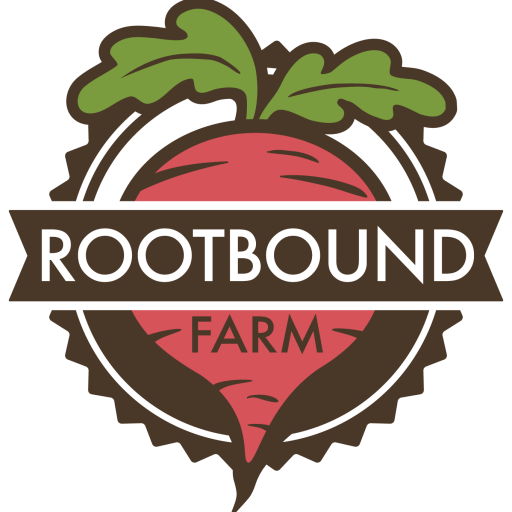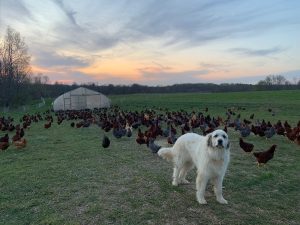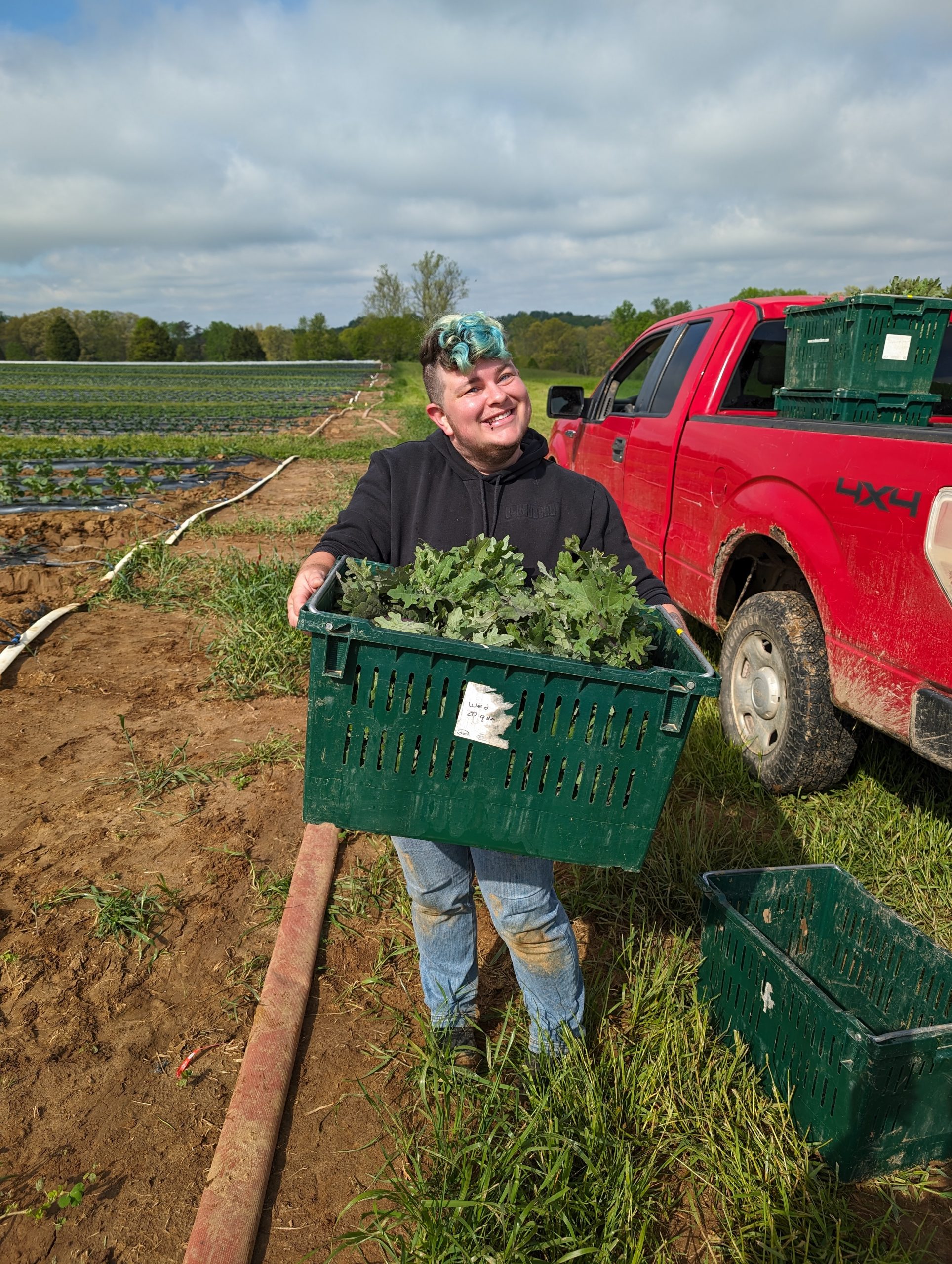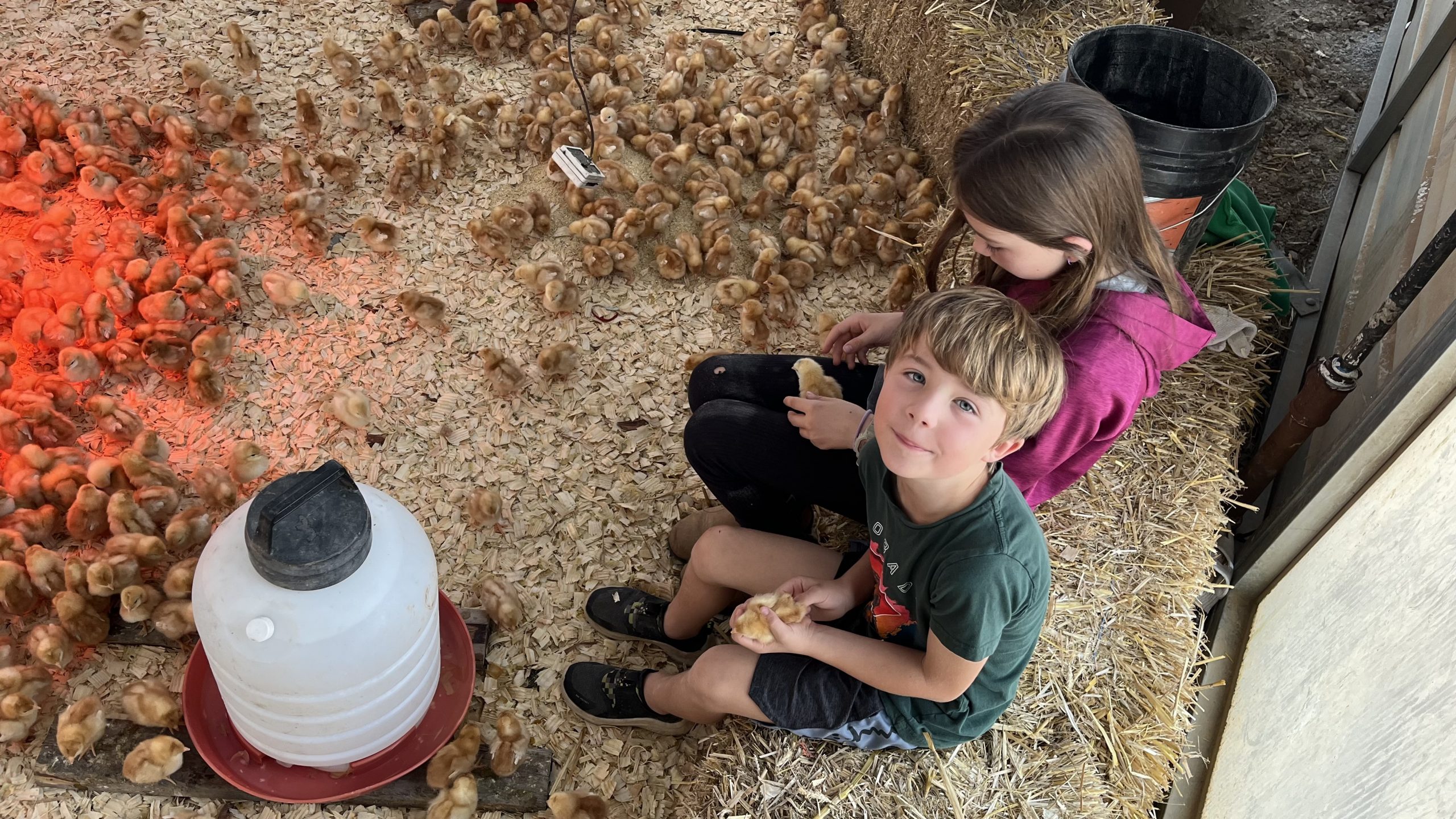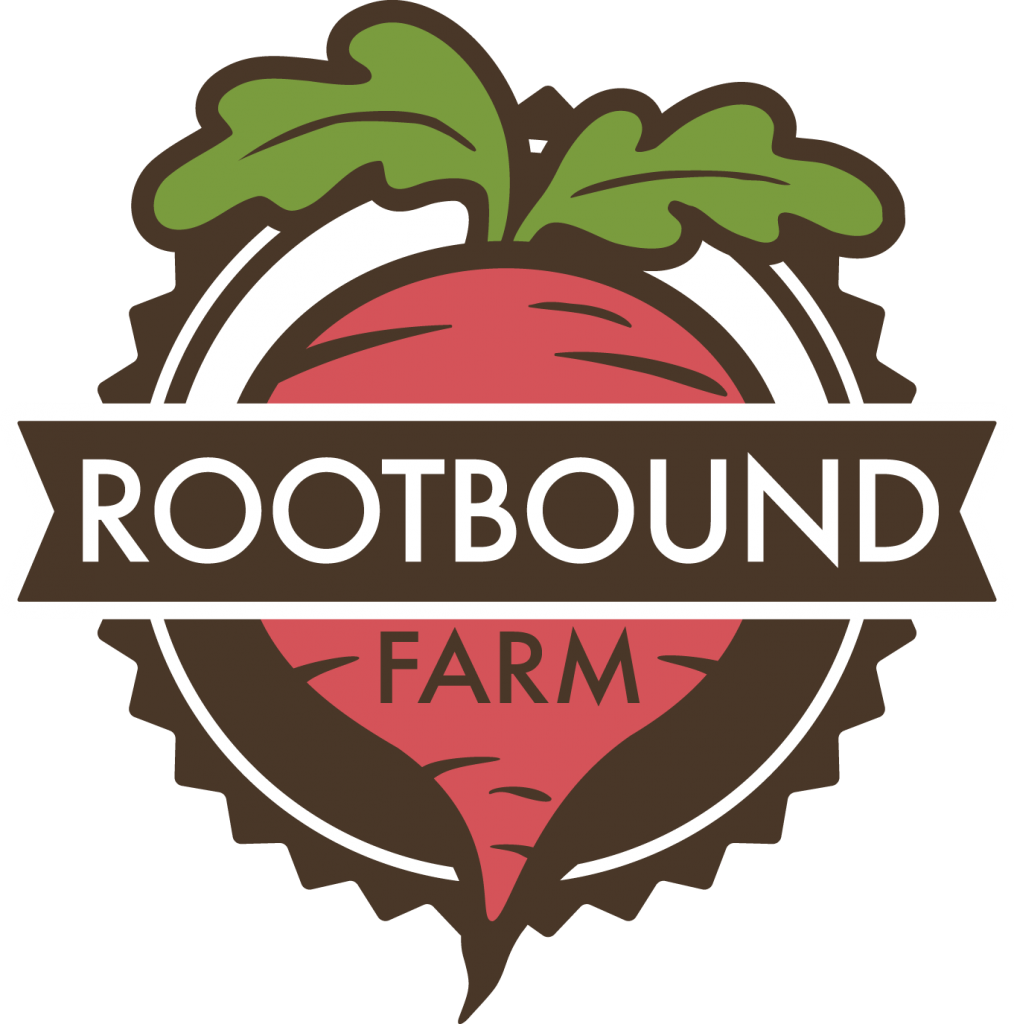This week we wanted to take a deeper dive into our newest enterprise on the farm, the chickens! We’re finding this journey to be exciting and challenging and most importantly, beneficial to our farm and our customers. Our chicken story feels like a natural evolution of our farming story.There are two big reasons we decided to bring poultry onto the farm, one economic and one ecological. These are of course interdependent – we know our long term economic sustainability depends on our ecological approach to farming – but the specifics of each have their own logic.
The economic impetus was to diversify and more fully contribute to your weekly grocery needs by adding more proteins – chicken and eggs – in addition to the lamb we’ve raised for several years. The ecological impetus was to diversify the type of livestock rotating through our pastures and cover crops, as each species contributes something unique to the health of our soil.
Our chickens, both the broilers (meat birds) and laying hens (for eggs), live their lives outdoors in our mobile chicken coops where they are able to graze (yes, chickens eat grass and weeds!) and hunt for grubs, worms, beetles, and bugs. They roost and run and fly and dig big holes in the ground and cover themselves in dirt, which is the chicken version of bath time.
And while they are able to supplement their diet with foraging, our chickens also need grain in their diet. When we decided to raise poultry we also committed to feeding only certified organic feed to our chickens, knowing what we feed our hens is as important as what we feed ourselves. We’re organic farmers because fundamentally we believe organic agriculture is healthier for the land, the farmers and farmworkers, and the consumers. Pastured poultry has become more popular and widely available (and that’s a good thing!) but most farmers opt to use non-GMO feed instead of certified organic (organic is ALWAYS non-GMO) because non-GMO feed is still much cheaper than organic feed. Non-GMO refers to the type of seed, not the production system, so that feed is still produced using synthetic fertilizers, chemical herbicides and pesticides. Committing to organic means committing to a healthy and sustainable product from start to finish.
We also work hard to make animal husbandry fundamental to our farming. Growing up a city kid and back when we were veggie-only farmers, the idea of “animal husbandry” wasn’t a concept I really understood. But after we got our first group of lambs and continued with poultry we’ve come to deeply embrace what animal husbandry means. There is a profound difference between raising an animal and caring for an animal. Husbandry describes a way of walking alongside an animal and helping it to thrive, to reach its full potential. Our chickens are never kept in cages. Their beaks are never trimmed. They always have access to the outdoors and the natural sunlight and fresh air. They aren’t overcrowded.
On the farm we are constantly challenging ourselves to push the limits of our knowledge and our creativity in our goal to produce sustainable healthy food on our farm. Since adding animals, we’ve come to see the essential role they play in a healthy agroecosystem. We are enjoying and appreciating the contributions poultry are making to the health of our farm and, we hope, to the health of your families.
So…… (thanks for reading this far!!!) ….starting next week, we are putting together some meat “bundles” for both our chicken and lamb. These bundles will offer the opportunity to stock up on different cuts, try our chicken (if you haven’t yet) and enjoy a bulk discount in doing so. Stay tuned! Orders will start this weekend.
Recipe Ideas for the Week:
